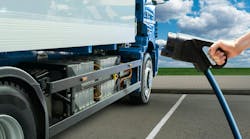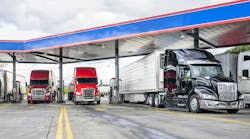A new study released by the Cato Institute claims that buses using a variety of alternative fuels – even ones fueled by B20 blends of biodiesel – may generate more significant reductions in energy consumption and greenhouse gas emissions than rail transit efforts.
In the last 15 years, the Cato Institute said American cities have spent $100 billion on new rail transit projects, and while they consume less energy when compared directly to buses, rail transit systems also rely on bus feeder systems which in the end boosts fuel consumption and greenhouse gas emissions above those of bus-only networks.
“While most rail transit uses less energy than buses, rail transit does not operate in a vacuum: transit agencies supplement it with extensive feeder bus operations,” said Cato senior fellow Randal O’Toole in the think tank’s new report, entitled “Does Rail Transit Save Energy or Reduce Greenhouse Emissions?”
“Those feeder buses tend to have low ridership, so they have high energy costs and greenhouse gas emissions per passenger mile,” O’Toole explained. “The result is that, when new transit lines open, the system as a whole can end up consuming more energy, per passenger mile, than it did before.”
He added that only a handful of rail systems are more environmentally friendly than a Toyota Prius, and most use more energy per passenger mile than the average automobile, while the study suggests that technological solutions to emissions are more promising and more cost-effective than expensive rail projects.
“Using biodiesel fuel, for example, costs less than 10 cents per pound of CO2 [carbon dioxide] saved, making it more than 25 times as cost-effective at reducing greenhouse gas emissions as light rail,” O’Toole noted.
The Cato Institute’s study recommends that instead of pursuing costly rail projects, cities should look at a mix of different options. These include powering buses with alternative fuels, increasing the concentration of buses on heavily used routes, building new roads, implementing tolls, coordinating traffic signals, and encouraging drivers to purchases more fuel-efficient cars.
The full Cato study can be accessed here at: http://www.cato.org/pub_display.php?pub_id=9325



